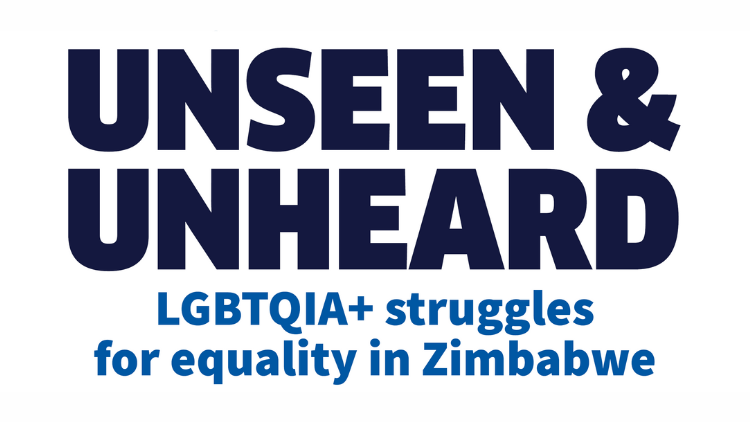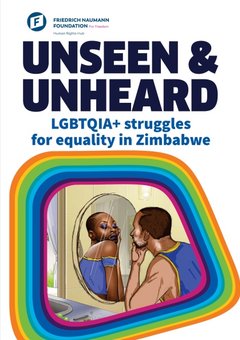LGBTQIA+
Unseen & Unheard

Estimates suggest that over 10% of Zimbabwe’s 16.67 million population identify as LGBTQIA+, though this figure likely underrepresents the truth. Fear of ostracism, violence, and legal repercussions forces many to live in silence. Former president Robert Mugabe’s infamous characterization of LGBTQIA+ people as “worse than dogs and pigs” and unworthy of legal rights set a tone of state sanctioned homophobia, one that lingers today despite constitutional provisions for equality and non-discrimination.
Since 1995, state-sponsored attacks on the LGBTQIA+ community have persisted, despite Zimbabwe’s constitutional guarantees of equality and nondiscrimination. Articles 2 and 7 of the Universal Declaration of Human Rights are embedded in Zimbabwe’s Constitution, which underscores gender equality as a core value (Section 3). Section 56 of the Constitution reinforces these values, stating that every person is equal before the law and entitled to equal protection without unfair discrimination based on various grounds, including gender and social status. However, Zimbabwe’s Constitution explicitly bans same-sex marriage. Same-sex relationships remain illegal, and men convicted of sodomy can face up to one year in prison and a fine. This legal framework leaves the LGBTQIA+ community vulnerable and marginalized in both legal and social spheres. These laws perpetuate stigma, leaving LGBTQIA+ individuals vulnerable to abuse, extortion, and even violence. The challenges are compounded by societal pressures.
Many LGBTQIA+ individuals face disownment, blackmail, arbitrary arrests, and exclusion from employment, healthcare, and religious spaces. Even the church, often viewed as a sanctuary, has become a source of marginalization. Recent incidents highlight this grim reality:
• Two men were arrested on sodomy charges while seeking police assistance for a domestic dispute.
• Police disclosed possessing over a thousand names from an LGBTQIA+ WhatsApp group, fuelling widespread fear within the community.
• The offices of the Gays and Lesbians Association of Zimbabwe (GALZ) were vandalized by religious extremists, yet no consequences followed.
A 2018 report by GALZ documented 170 human rights violations against LGBTQIA+ persons, ranging from physical assaults to forced outings, unlawful detention, and workplace discrimination. Despite these adversities, grassroots organizations and activists continue to advocate for change, often at great personal risk. In September 2024, the Zimbabwe Independent collaborated with the Friedrich Naumann Foundation (FNF) to shed light on the struggles of intersex individuals, a subgroup within the LGBTQIA+ community. The article, "Unseen but Present: Plight of Intersex People," underscored the invisibility and challenges faced by this marginalized group.
This book aims to amplify the voices of Zimbabwe’s LGBTQIA+ community, documenting their lived experiences and advocating for meaningful change. Through these stories, we seek to challenge societal prejudice, hold authorities accountable, and inspire the alignment of Zimbabwe’s laws with its constitutional ideals of equality. We express our gratitude to the brave men and women who shared their stories, often at great personal risk. To protect their privacy and safety, pseudonyms have been used, ensuring the integrity of this work while safeguarding those involved.
